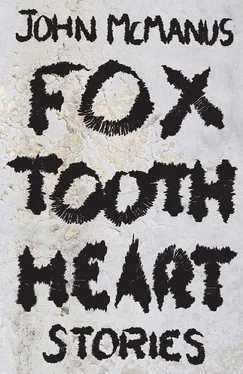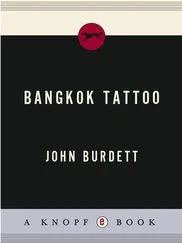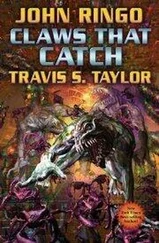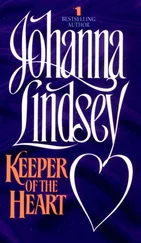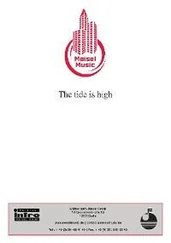He stood by the fire, wondering. “Show me,” he said, replying to what Bruce seemed to have already forgotten saying.
THE NINETY-FIFTH PERCENTILE
THE DAY THE HONDURAN BOYshowed back up in American History instead of vanishing with his deported parents, Caidin Maddox convinced his friends Jeff and Adam to follow him home from school. The boy, Juaco Luna, had been wearing the same three T-shirts all spring. His shoes had holes, he carried no backpack. That wasn’t why Caidin stared at Juaco’s smooth brown arms and slender frame all through class, but it gave him an excuse to be curious. Everyone else at their West Houston magnet school, though it was technically open to teens of any income bracket who tested above the ninety-fifth IQ percentile, owned a few weeks’ rotation of shirts.
Waiting for Juaco in Adam’s Z4, the boys discussed the driver’s exam. Caidin would be sixteen in June, and Jeff wasn’t far behind.
“Don’t study,” Adam said. “That test is designed for the other ninety-four percent. Jeff, when do you get your Viper?”
“Starting to think Corvette, so me and Caidin can have matching ones.”
“Awesome,” Caidin lied. He hadn’t told his friends the sad terms of his deal: the Corvette would come the day he joined the Air Force — same as his brother Caleb, who’d earned a Porsche by signing up.
Jeff glanced at Juaco’s decade-old Chrysler LeBaron. “I’d take cabs to school before I’d drive that thing.”
“Mexicans like old cars,” Adam said. “They won’t ride in a new car.”
“He’s Honduran, but remind me why we care?”
As Caidin sought an excuse for why, Milo Hux, the pale waif who’d founded the gay-straight alliance, walked with Juaco to the LeBaron and opened the passenger door.
“Now do you get it?” he said.
His friends did. They tailed the LeBaron to a Sugar Land mansion near Adam’s, where the car disappeared behind a gate. “You’ve got to admit this is some shit,” Caidin said, and they agreed, but back at Jeff’s it was like they’d already forgotten. “Bet they’re sucking each other” drew only a chuckle. When Caidin said, “I bet the gay suicide hotline’s on his speed-dial,” they were too focused on Xbox to laugh at all.
By the time of the yearbook staff meeting the next day, Caidin was bursting to talk about Juaco somehow. He didn’t want to speak ill of anyone, per se, but he couldn’t go singing Juaco’s praises. All he could think to do was announce, “Milo Hux and Juaco Luna share a bed and Milo’s hiding him from ICE,” which seemed to do the job.
A week later, Juaco quit coming to class. The week after that, Caidin’s mother looked up from the PTA newsletter and said, “Do you know the boy who got deported?” Caidin shook his head. When she passed him the pamphlet, his eyes fell to where an Agent Bret Garrity of US Immigration and Customs Enforcement, same last name as the yearbook copy editor, said he respected the PTA’s opinion about Juaco Luna Ochoa but the law was the law.
The removal would have happened anyway, Caidin was telling himself when he spotted Milo at lunch, eating alone. The law was the law. Every time he came close to Milo, he repeated that to himself, feeling gradually better, until the day his brother phoned from Lackland to ask their mom to drive the Porsche while he was overseas.
“It’s too small for my trips to Austin,” said Mrs. Maddox, a state senator. “Caidin, maybe you could take over. But the first sign you’re being foolish, we’ll garage it.”
It was like he’d been pumped full of speed. Unable to believe his luck, he hugged his mom, shook his dad’s hand. The last day of school, as his brother was landing in Anbar Province, he scored ninety-eight on the driving test. To celebrate, he drove his friends all over town. The faster he went, the more adrenaline he had. Soon Jeff got his Corvette. Every day they prowled in someone’s car. They cruised at the Galveston Seawall. One day Adam phoned to say he was bringing Milo Hux along to SplashTown, “since he’s just up the road.”
“Homo say what?” Caidin said, uneasy.
“Just for someone to make fun of, you know.”
On the way to the water park Milo kept making eyes with Caidin as if he knew the truth. Caidin adjusted the mirror so Milo couldn’t see, but then he couldn’t see Milo either and he put it back. At one point Milo announced that he’d lied to his parents about where he was; they believed he was taking the SAT. “It’s weird someone like you has parents,” Caidin said.
Jeff and Adam giggled. Encouraged by their laughter, Caidin picked at Milo all day — holding his head below water more than once, tossing his ice cream into the lazy river, even telling some jocks that Milo had a crush on them.
Over and over his friends cracked up. It seemed like even Milo was stifling laughter, until he said, “You treat me like a dog.”
“Hey, we were just having fun,” Jeff said.
“Yeah, think of it like an initiation,” Adam said.
“Except I’m nicer than this to dogs,” said Caidin, afraid his friends were wussing out. When everyone around you was gifted, it was hard to excel. Even in Caidin’s percentile he intended to be best at two things: driving fast and making fun of gay boys. “I won’t brake till you cry uncle ,” he said on the drive home, weaving through traffic at ninety miles an hour. On the shoulder he zoomed past a slow bus. Veering back into his lane, a glance in the rearview presented Milo, tranquil as a monk, gazing serenely west.
Caidin observed Milo’s strange sublimity, waiting for eye contact again, until Jeff shouted his name. They were hurtling toward a semi.
He stomped on the brake, skidded, regained control. “Why didn’t you cry uncle ?” he said as they all caught their breath.
“I suppose I wasn’t paying attention,” Milo said dreamily, as if he didn’t quite know where he was.
In July Caidin’s mother looked up from another newsletter and asked, “Do you know a Milo Hux?” It seemed that a Milo Hux had flipped his car on the Gulf Freeway and died.
“He was doing ninety-five. Tell me you know it’s idiocy, going that fast.”
“Mom, on the Autobahn in Germany—”
“It’s idiocy there, too! You’d throw your life away for a fast car ride?”
“I promise I won’t die,” Caidin said, which upset her more until he revised his words to say, “I promise I won’t drive like what’s-his-name.”
Without asking Jeff and Adam along, he sped toward the coast. He knew his friends would blame him for Milo. No one understands me, he thought, almost happy in the idea, touching himself while he drove. He bet Caleb was jerking off in his Strike Eagle. Almost to Surfside Beach, his phone rang. It was Jeff. “Hey, faggot,” he answered, relieved.
“I bought Poisoned Wasteland . Can you be here in half an hour?”
Jeff’s house was sixty miles away. In places the speed limit would dip as low as thirty, and there were traffic lights. “Don’t see why not.”
“Bring those games I lent you.”
“I’ll try,” he said, jerking the wheel hard left across the center line. He set a new course. Feeling sorry for people who’d died before there were cars, he floored it. He hoped his body would never run out of adrenaline.
“Took you long enough,” Jeff said forty-eight minutes later.
“Yeah, I was south of Freeport when you called.”
“Caidin, shut up.”
“Porsches are faster than Chevrolets,” he said with a shrug, sitting down to play Jeff’s new game. Their characters, deformed mutants who’d survived a nuclear war, wandered a dead zone in search of elixir. The fastest they could walk was four miles an hour. To circumnavigate the game world would take a thousand game hours, ten real hours. Caidin didn’t see why his dumb, trudging avatar couldn’t at least ride a bike.
Читать дальше
